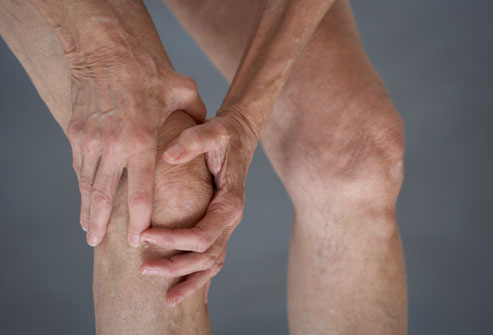Crepitus knee pain medication is available for those experiencing painful crepitus. For those who are unfamiliar with the term, crepitus refers to a cracking or grinding sound that comes from within the knee joint. Crepitus can affect many joints throughout the body, and sometimes involves soft tissue when there air finds its way into the tissues (abnormal). Crepitus is not necessarily harmful, as most of us experience it very often. It does not come with any pain, and does not predispose to developing any serious conditions. It only becomes a problem when it is occurs far too often, or when it becomes painful. Crepitus is recorded in many patients who end up having degenerative joint disease, as well as those who have undergone some form of trauma as this too can cause the crackling sounds.
Crepitus knee pain medication is encouraged for those who experience pain each time the crackling sounds are heard. The medication is supposed to help alleviate some of the symptoms that may surface in the affected knee, the worst of which is pain. The most common drugs given are Non-steroidal Anti-Inflammatory drugs. They really help do help counter the pain as well as the inflammation which accompanies it. Pathologic crepitus knee will be painful to the touch, and this is basically the problem that the NSAIDs aim at fixing. Some of the common NSAIDs available over the counter and as prescriptions include Ibuprofen, aspirin and naprosyn.
The relieving effects of the medication should be felt a little while after beginning a new dosage. If you are taking the medication and undertaking physical therapy, or basically some form of exercise, you should avoid dosing up before. NSAIDs have this undesired side effect of increasing stomach acidity. It’s the reason why medical professionals insist that you take them with meals, to avoid ulcerations in the stomach. If the medication is not working, consult your physician first before deciding to take newer prescriptions with greater strength.

Crepitus knee pain medication aims at helping you manage the problem, not get rid of it. Thus you should not rely on the medication alone to treat crepitus knee problem. There are methods of dealing with the crackling sounds such as taking up knee strengthening exercises and losing weight. These are more effective at giving a longer lasting solution to the problem of popping. When you try out all these methods and none of them reduce the crepitus, you should start considering other treatment options.
One possible downside of taking pain killer medication for knee crepitus is that the problem is not eliminated. When the source of the crepitus is two knee bones rubbing against each other, the medication will only be postponing an inevitable outcome. For this reason, should you take the medication for two weeks and only receive little relief from them, you should stop taking them and search for more effective solution to the problem. Also, refrain from taking the pain medication for knee crepitus unless there is actual pain and not just discomfort.